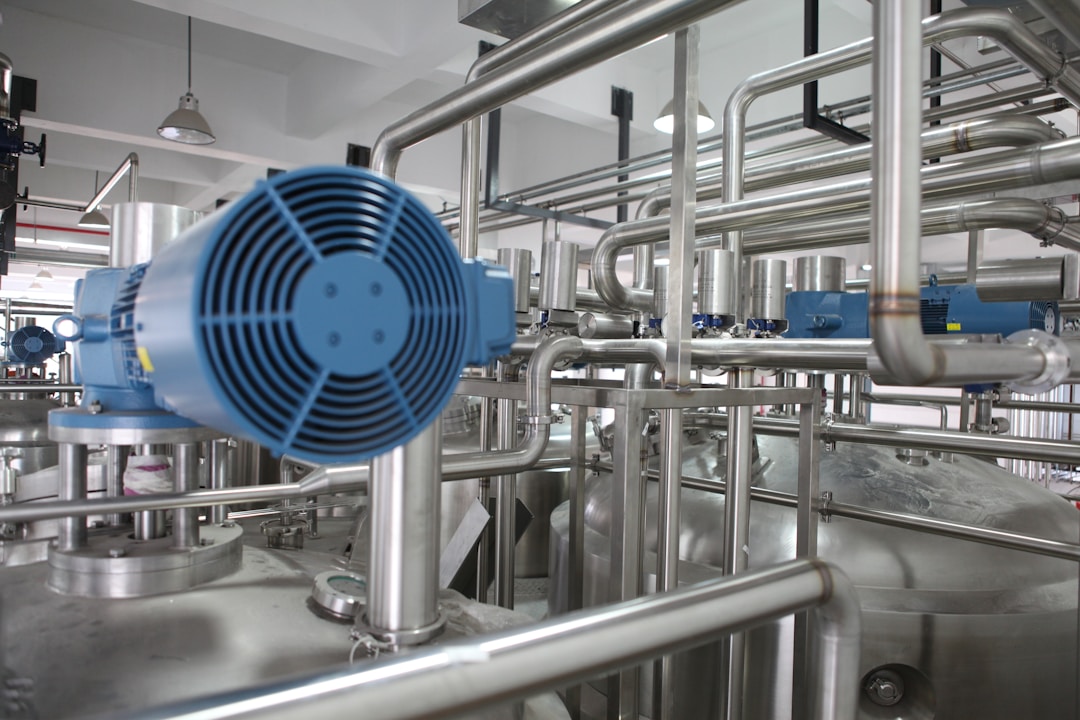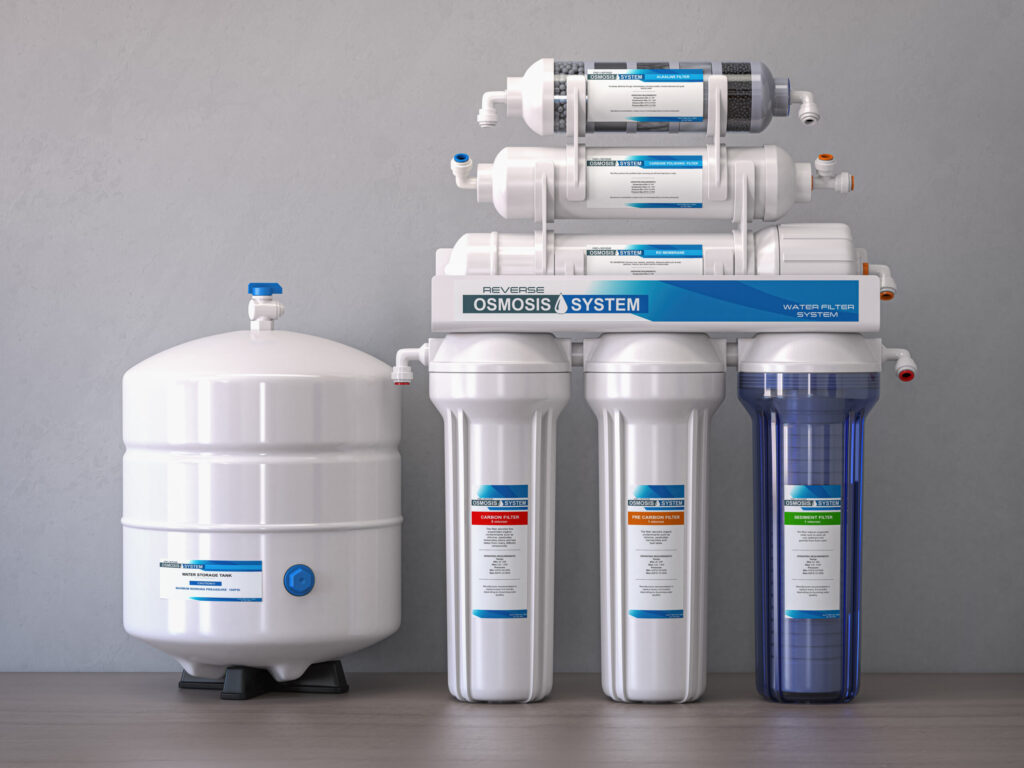For businesses that require a substantial quantity of high-quality water, the significance of water treatment technologies such as industrial reverse osmosis systems cannot be overstated. Reverse osmosis systems (RO) offer a multitude of benefits, from reducing water purification costs to safeguarding equipment from damaging mineral deposits. By purifying and recycling water, this technology contributes considerably to sustainable strategies in industries. In this article, we will delve into these advantages and more, shedding light on why RO systems have emerged as a cornerstone for numerous industries. Keep reading to learn more.
Understanding Reverse Osmosis
Before delving into the advantages of industrial reverse osmosis systems, it’s important to comprehend what reverse osmosis entails. Originating from the scientific concept of osmosis, reverse osmosis essentially involves pushing water under pressure through a semipermeable membrane. This process filters out contaminants and impurities, resulting in highly purified water. Whether it’s minute particles, dissolved solids, or microorganisms, the semipermeable membrane ensures only water molecules can cross through.
The key lies in the high-pressure component of the process. The pressure essentially reverses the natural osmosis process and powers water from a more concentrated solution to a less concentrated one through the semipermeable membrane. Consequently, impurities and contaminants are left behind, resulting in purified water. One might consider this process as an intricate strainer, one that strains on a molecular level.
This technology is not merely restricted to water. Reverse osmosis can also purify other fluids and gases, thereby broadening its applications. For instance, it can cleanse wastewater, render seawater potable, or purify certain gases.
The Value of High-Quality Water in Industries

Having established a rudimentary understanding of reverse osmosis, it’s now crucial to comprehend why high-quality water is necessary for industries. To begin with, water is a universal solvent. As such, it sees extensive use in industries, whether in manufacturing processes, cleaning, or cooling. However, untreated or poorly treated water can wreak havoc on industrial processes and equipment.
For example, untreated water often carries a variety of contaminants, including minerals, salts, microorganisms, and organic compounds. When such water is used in industrial processes, these contaminants can accumulate in equipment, lead to corrosion, blockages, and even compromise the quality of products. This can magnify maintenance needs, entailing additional expenses while simultaneously reducing productivity due to downtime.
Therefore, the essence of high-quality water in industries cannot be overstated. By ensuring water is devoid of harmful contaminants, industrial RO systems help industries maintain the quality of their processes and products while curbing costs of maintenance and downtime.
Industrial Applications of Reverse Osmosis
The applications of reverse osmosis in industries are as numerous as they are diverse. Few stand out in their extensive use of this technology. For instance, the power generation industry relies heavily on reverse osmosis systems. The technology aids in producing high-purity water, essential in steam generation and cooling processes. This high-quality water reduces system scaling and corrosion, thus enhancing system life and efficiency.
Moreover, the food and beverage industry also employs reverse osmosis systems extensively. Notably in brewing, where water quality can significantly influence the taste of beer. Additionally, in soft drink production, high-quality water is a must to ensure consistent taste across batches. The systems can also be found in the pharmaceutical industry, where water purity is crucial in pharmaceutical production processes.
The use of reverse osmosis systems is further seen in healthcare institutions, particularly in kidney dialysis units. The systems help in purifying the water used in dialysis machines, essentially performing some of the kidneys’ functions. The industrial applications of reverse osmosis systems are not limited to these industries. They are used far and wide in numerous sectors, underlining their importance in modern industries.
An Environmentally Sound Choice
In this era of environmental consciousness, industrial RO systems provide an eco-friendly option for water purification. Unlike certain traditional methods, reverse osmosis does not rely on harmful chemicals or generate detrimental byproducts. The primary waste product is concentrated water, containing the impurities removed during the process. This environmentally sound operation makes it an attractive choice for companies that strive to minimize their environmental footprint.
Furthermore, reverse osmosis systems can play a significant role in managing water resources. They can turn wastewater into purified water that could be used in other processes or safely released into the environment. This encompasses an immense benefit for areas with limited freshwater supply and industries seeking to adopt sustainable practices.
As part of their green strategies, companies could potentially repurpose the brine or concentrated water produced by reverse osmosis. For instance, this brine could be used in certain industries like concrete production or be evaporated to produce salt. Such innovative measures underline how reverse osmosis can contribute to sustainable industrial practices.
Boosting Profit Margins and Longevity

Beyond environmental advantages, industrial RO systems pose noteworthy economic benefits. By producing high-quality water, these systems can notably protect equipment from harmful impurities, minimizing the risk of scale, corrosion, and equipment failure. This results in less frequent equipment maintenance and replacement, which can dramatically cut operating costs in the long run.
Moreover, ensuring the consistent quality of water used in industrial processes also safeguards the consistent quality of the products. Whether it’s food, drinks, pharmaceuticals, or other products, the role of water quality in achieving high standards cannot be overlooked. Consistency in product quality not only adds to brand credibility but also boosts customer loyalty and satisfaction, thus increasing revenue.
Lastly, by converting wastewater into usable water, reverse osmosis systems present the opportunity for companies to save on water procurement costs. Coupled with reduced maintenance expenses and enhanced product quality, these systems can significantly boost profit margins and enhance business longevity.
Selecting the Right Industrial Reverse Osmosis System
With the myriad benefits of reverse osmosis systems laid bare, the decision to opt for such a water purification system might appear uncomplicated. However, it’s essential to understand that not all systems are created equal. The efficiency and effectiveness of a system depend significantly on its design and components, alongside the unique requirements of the industry it caters to.
Choosing the right system involves gauging the quality and volume of water required, the features of the source water, and the nature of contaminants it carries. Additionally, factors like ease of operation and maintenance, energy efficiency, and adaptability to future changes also weigh in on the decision.
Several companies specialize in designing and manufacturing reverse osmosis systems, each with its unique merits and drawbacks. Therefore, identifying a trustworthy and experienced provider can significantly simplify the process and ensure that the chosen system meets the industry’s unique requirements.
The Future of Industrial Reverse Osmosis Systems
Despite its extensive benefits and applications, the domain of industrial reverse osmosis is continually evolving. Technological advancements are persistently being fused into the systems, enhancing their efficiency and versatility. For businesses, keeping abreast of these developments can yield substantial long-term benefits.
Some notable developments aim to reduce energy consumption, extend membrane lifespan, and improve the treatment of challenging source waters. The spiraling sectors of artificial intelligence and machine learning also present exciting possibilities for automating and optimizing the operations of these systems.
Furthermore, the trend toward sustainability is unlikely to diminish anytime soon. As such, the demand for technologies such as reverse osmosis that contribute to effective water management and minimization of environmental impact is only poised to increase. For forward-thinking businesses, investing in reverse osmosis technology now could confer significant competitive advantages in the future.
The benefits of reverse osmosis are comprehensive and multidimensional, spanning environmental, economic, and operational advantages. By employing this technology, industries can ensure high-quality water for their processes, minimize costs, contribute to environmental sustainability, and stay ahead in the competitive industrial landscape.





